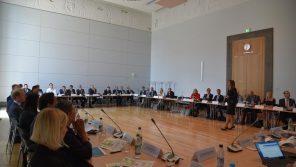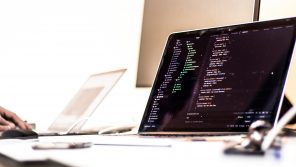On April 8, the FutureLaw 2021 conference was held online. FutureLaw 2021 was the ninth annual conference hosted by CodeX – The Stanford Center for Legal Informatics focusing on the way technology is changing the legal profession and the law itself, and the way these changes affect us all.
Typically held on the Stanford campus, CodeX FutureLaw brings together the academics, entrepreneurs, lawyers, investors, policy makers, and engineers spearheading the tech-driven transformation of our legal system.
Due to the ongoing health emergency, the conference was held virtually again this year. To extend the experience to as many as possible, admission was free.
The program was kicked off with an opening keynote by computer scientist and Turing Award winner Alan Kay. His keynote discussion focused on natural human storytelling and its important impact on the development of human-centered design for computer frameworks.
“You make progress by creating an entirely new environment, not just doing experiments.” – Alan Kay on legal innovation.
That was followed by a panel on “Computable Contracts 2021”, moderated by Prof. Harry Surden (University of Colorado School of Law). The panelists clarified core computable contracting concepts and discussed key questions in the field. “The hallmark of a computable contract is that a computer can determine whether a contract term has been complied with, with little human intervention. How is it that the computer understands a computable contract. The answer is that we tell them.” – Prof. Harry Surden.
Participants were then invited to a fireside chat with Roland Scharrer (CTO AXA), Michael S. Pieciak (Commissioner, Vermont Department of Financial Regulation), and Daniel Siciliano (Fellow, CodeX) on the use of “Computable Contracts in Insurance”. Roland Scharrer, for instance, talked about the example of travel insurance and pointed out how digitization helps massively because one can manage the risk without much administrative effort.
Afterwards, the winners of the frist ever CodeX Prize on computational law for 2021 were announced: Robert Kowalski, Fariba Sadri and Market Sergot for their work on computational law related to the Formalisation of the British Nationalities Act.
This was followed by a series of “Law, Education and Experience” talks. Among others, Kristen Sonday (Paladin) and Pieter Gunst (Legal.io; CodeX) had a fascinating presentation on “The Opportunity for Diversity in Legal Tech”. After that, Prof. Daniel Katz (Chicago Kent Law School; CodeX) and Dirk Hartung (Bucerius Law School; CodeX) shared some insights on “Complex Societies and the Growth of Law”. In addition, Prof. Houman Shadab (New York Law School, CodeX) gave an impressive demonstration on Legal APIs.
The final panel of the conference examined the real-world implications and impact of Prof. Deborah Rhode’s scholarship in connection with the regulation of legal services, innovation, and access to justice. The panel was moderated by Nora Engstrom (Stanford Law School; co-head of the Stanford Center on the Legal Profession).
At CodeX, researchers, lawyers, entrepreneurs and technologists work side-by-side to advance the frontier of legal technology, bringing new levels of legal efficiency, transparency, and access to legal systems around the world. CodeX’s emphasis is on the research and development of computational law – the branch of legal informatics concerned with the mechanization of legal reasoning.




